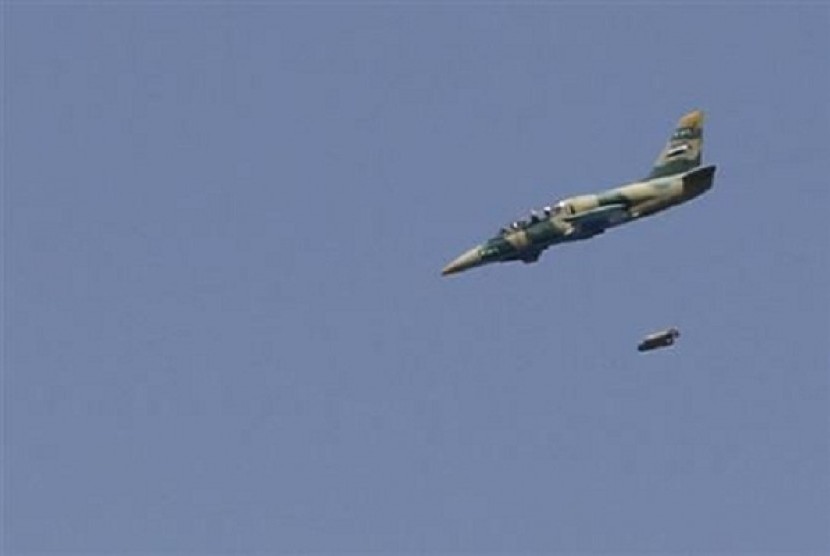REPUBLIKA.CO.ID, DAMASCUS -- After living for over two weeks in underground shelters while intense battles between government troops and rebel forces raged on above them, residents of the Syrian town of al-Nabek left their sanctuaries only to discover they must endure a new battle of severe electricity and water shortages.
Al-Nabek, a town in the rugged al-Qalamoun region north of Damascus, was the latest town in the strategic mountainous region reclaimed by the Syrian army after the troops dislodged rebels from the adjacent towns of Qara and Deir Attieh.
The town is located next to the strategic Damascus-Homs highway, which connects the capital, Damascus, to northern Syria, as well as government strongholds along the Mediterranean.
However, fighting had closed the road for nearly 20 days, causing a sharp shortage of fuel in Damascus but the region's residents hope that the army's latest victory could re-open the road soon.
During a government-organized tour for foreign media to the town, Xinhua reporters said they observed the town hadn't suffered a large amount of destruction akin to what other conflict-stricken towns in central and northern Syria had suffered.
They noted that the vast majority of people remained in the town's underground shelters despite the heavy fighting, feeding upon the portions of food and water they had stocked in anticipation of the showdown.
"During the past 20 days, the armed opposition groups had prevented us from moving or working but the Syrian army pushed them to leave and the situation is now much better," resident Abu Ahmad told Xinhua.
"Most of us, the al-Nabek residents, have remained in underground shelters during the 20-day battle but some of the locals used to venture out from time to time to check on their properties before returning to the shelters. People here helped each other with food and water," he said.
The aftermath
"Those are (the rebels') flags and the powder they were using to booby-trap cars," a military commander told reporters, as he pointed at various black flags scattered on the ground near him, adding that government forces had killed many rebels during their offensive as the army sought to completely procure the town.
In Syria, black flags are highly characteristic of the paraphernalia used by the al-Qaida linked Nusra front.
Al-Qaida-linked groups such as the Nusra Front and the Islamic State of the Iraq and the Levant have taken advantage of the anti- government movement in Syria, emerging as a serious force among the rebel groups.
Muna Khatib, a resident in the town, said that when the rebels entered the town they "cut off everything." She further recounts how during the two-week battle her sister was shot by sniper fire in a failed attempt to rescue someone else.
"Following the rebels entry to the town, all exit and entrances were blocked and, we remained without bread, water or electricity for over 20 days, and the (rebels) started to shoot at passersby," she said. "Now with the presence of the Syrian army, the situation is becoming better. All we lack are electricity and water."
As the reporters were on their visit, an elderly woman resident also approached them asking whether they have any idea when the heating diesel will be shipped into the town, demonstrating the desperation and uncertainty of many of the town's 40,000 inhabitants.
The people of al-Nabek were visibly worried about the diesel situation as reports came in that the region is expecting a heavy snow storm, locally known as "Alexia." The storm is expected to last for more than three days, during which heavy rain, snow and strong winds will hit the Syria and Lebanon region.


